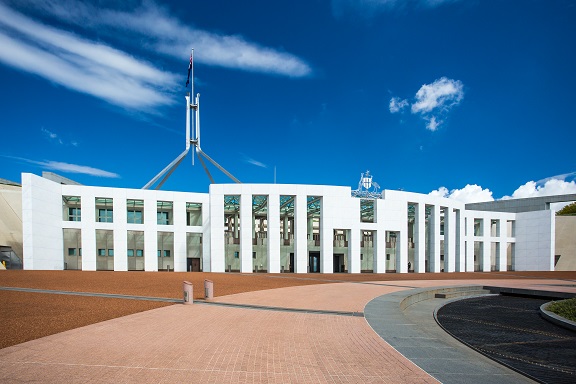by Ashley Gardiner | Feb 8, 2024 | Transcripts
Topics: Industrial relations legislation; right to disconnect
E&OE
Gary Adshead: Let’s have a go now and have a chat to Andrew McKellar, the Chief Executive of the Australian Chamber of Commerce and Industry. Thanks for your time, Andrew.
Andrew McKellar: Thanks, Gary. Great to be with you.
Gary Adshead: Light touch legislation. Do you agree?
Andrew McKellar: Well, we don’t, and of course this has been really foisted upon the Parliament at the last minute. Literally this amendment, the legislation has only been available for people to scrutinise from late last night, early this morning. So this has been potentially put through the Parliament almost sight unseen. So no evidence, no case, has been put together. I mean if you’re listening the other day to Senator Jackie Lambie, she was saying in more than 10 years in the Australian Parliament, nobody, none of her constituents, no business, no employee had ever raised this issue with her. And I think she’s not alone in that boat. It just seems that this is a thought bubble that the Australian Greens have put together. And by this afternoon it could be the law of the land.
Even if what Barbara Pocock said there about for most employers, it’s not an issue for most employees, it’s not an issue. Any business now, when this becomes the law, is going to have to go through the red tape, the compliance to make sure that they’re abiding by this legislation. So the idea that this just doesn’t have any impact for most people, for most businesses, it’s not the case. When you create a law, business has an obligation to make sure they’re complying. And I think that’s red tape that many small businesses are going to have to struggle with.
Gary Adshead: And big businesses, because I’ll put it this way, I mean you hit the nail on the head there because all companies will have to look at whether they need to make sure that the people they’re signing up or have on their books are prepared to waive the right to disconnect. And I mean people in our industry, in journalism, broadcasting, I mean seriously? That I would not expect that sometimes I’m going to be called out of hours in relation to matters. I mean it’s a nonsense. So all companies are going to have to look at this and say, right, do I need to tell Bob that I need him to waive his right?
Andrew McKellar: That’s absolutely right. This is the thing. There is a compliance burden there. Every company, when you bring in legislation like this, you’ve got to look at your due diligence, you’ve got to make sure you’ve got the policies and procedures in place. It’s not light touch. At the end of this, there’s a prospect that this is going to get written into awards. That brings with it the risk of penalties if you aren’t complying. So there’s a potential financial cost at the end of all of this. So the idea that this is in some way, some sort of a light touch thing, it really is putting aside common sense. It means that we are trying to regulate in this space something that ought to be really applied as common sense. And in many cases, of course, businesses are doing this in their enterprise agreements but now have to go down this approach, it really is an overreach.
Gary Adshead: I mean there’ll be people, this won’t come across very well, but I’ll say it, there are plenty of workers out there that’ll be happy to game the system with this one as well. There are people out there that sort of make sure that they use their maximum number of sick days and so on. They can fudge it as much as they want and they will use this to do the same. No, no, I have a right to disconnect. Now, have you asked the Coalition whether they’ll wind this back?
Andrew McKellar: Well, look, we’re having discussions with the Coalition. We’re having discussions with the cross-bench senators, obviously. I think the Opposition has made it very clear they don’t support this. They are concerned by it. Of course, if this goes through as legislation, as we expect there’s now a deal on it, then ultimately it’s going to be up to future governments, future parliaments to see whether this is working, whether it’s necessary or not. Unfortunately, in the short term, the government seems to have the numbers. And from this afternoon, this very well could be the law of the land. And that’s what we’ve got to deal with.
Gary Adshead: And the other point, if we just talk about it in a sort of a holistic way, people who want to get ahead in the world, they’ll do those sort of things outside of the normal working hours because they’re trying to impress, set an example. And they’re trying to show that they’re prepared to go above and beyond. I mean is that no longer the sentiment here, Australia, it’s like, do as little as you can and that’s enough?
Andrew McKellar: Well, it seems to be very much the approach that the Greens are seeking to push on business, on employees here. And of course you’re right. I mean many people are flexible. We are looking to try and provide more flexibility in the way we work. I think it’s come out of the pandemic. We have all of this talk now about not necessarily having people in the office every day of the week or in the workplace every day of the week. We recognise that people have family commitments. They may have a tradesperson coming to their house, they’ll come in late today, they’ll work a bit longer later on. Are we going to put all of that aside because of this sort of silly legislation, which honestly is just a complete breach of common sense.
Gary Adshead: Maybe there’ll be people that are working from home that will exercise their right to disconnect as well. Alright, well we’ll wait and see how it plays out. I appreciate you joining us.

by Ashley Gardiner | Feb 7, 2024 | Media Release
Joint statement from the CEOs of Australia’s chambers
On behalf of business operators across Australia, we urge the Senate to carefully reconsider the implications of this rushed and flawed industrial relations legislation.
The national, state and territory business chambers are united in support of our small and family enterprise business community that is already under significant pressure from rapidly rising costs.
We are gravely concerned that the proposed legislation will harm all business owners and operators, especially growing ones. The legislation will also impact the prospects for the very employees that it purports to protect. It will damage the communities that are reliant on the growth and resilience of local businesses.
Our members employ millions of Australians across regions, towns, cities, and every sector. Most of our members are small businesses that contribute so much, and we will burden them with additional constraints and costs.
These costs will be passed on to the community or result in the loss of jobs. Or both.
Small business owners are already subject to a bewildering array of bureaucratic constraints, and this legislation will further bind them in red tape.
A one-size-fits-all approach to the casual labour market, in an economy that is already short of essential skills, could not come at a worse time. It will negatively affect those workers who welcome flexibility in their lives, and at a time when flexibility and skill-share is a rising economic saviour.
We encourage the Senate to view this legislation through the broad lens of mainstream Australia, where family enterprise and small business is the lifeblood of the economy and community.
In particular, amendments proposed by the Greens have not been subject to any scrutiny or consultation and were not on the table when the Senate committee held hearings around Australia late last year.
Specifically, we are worried about these elements of the legislation:
- Employee-like forms of work. The definition is too broad and will capture many independent contracting arrangements in industries where the government does not intend to set minimum standards.
- Casual employment. Until the Fair Work Commission makes a determination, employers will face substantial risk when employing casuals. This will make hiring casual employees unattractive, impacting job creation and those workers who embrace the flexibility of casual jobs.
- Powers for union officials. The legislation will give union officials increased rights to enter a workplace without notice, despite only 8 per cent of private sector employees being union members.
- Road transport. This is the effective re-establishment of the Road Safety Remuneration Tribunal, which was found to be disastrous for owner-drivers.
- Intractable bargaining. Unions would be incentivised to drag out a bargaining dispute and force matters to be arbitrated. By definition, an employer would always be worse off on any term to which parties cannot agree.
- Right to disconnect. Employees already have legal protections against working unreasonable additional hours outside work. Modern technology has provided flexibility to the workforce and many employees no longer need to sit behind a desk from nine to five, which parents have embraced. By agreement with their employers, they can work flexibly in a way that suits them and their families and maintain a work-life balance.
We cannot allow industrial relations laws to make it harder for hard-working business owners to generate the wealth we enjoy as a nation.
We cannot allow industrial relations laws to make it harder for small business owners to grow, create valuable jobs and invest in skills.
This bill will bring many unintended consequences and should not be supported in its present form.
Statement by the Chief Executive Officers of Australia’s chambers:
Andrew McKellar, Australian Chamber of Commerce and Industry
Daniel Hunter, Business NSW
Paul Guerra, Victorian Chamber of Commerce and Industry
Chris Rodwell, Chamber of Commerce and Industry Western Australia
Greg Harford, Canberra Business Chamber
Heidi Cooper, Business Chamber Queensland
Michael Bailey, Tasmanian Chamber of Commerce and Industry
Greg Ireland, Chamber of Commerce Northern Territory
Andrew Kay, Business SA

by Ashley Gardiner | Feb 2, 2024 | Media Release
Australia’s prized title as one of the most sought-after international destinations risks being undermined by a sub-standard experience on arrival.
The Australian Chamber – Tourism is calling for increased investment to streamline the procedure for tourists entering Australia.
“It is clear that Australia is not keeping pace with the rest of the world regarding passenger facilitation,” Australian Chamber – Tourism executive chair John Hart said.
“Australia’s passenger movement charge is one of the most expensive in the world, and yet we rank 47th worldwide for our entry-point infrastructure.
“We must invest in improvements in our infrastructure and the broader passenger journey, which for many travellers is the first interaction they have with Australia.”
The Chamber’s Future Traveller Working Group has met with industry leaders to understand better passenger facilitation modernisation around the world and how it can be adapted for travellers to and from Australia.
The Chamber’s pre-budget submission calls for increased digitalisation and improved infrastructure instead of the current manual processing systems, which are inefficient and outdated.
“As we prepare to open Western Sydney International (Nancy Bird-Walton) Airport in 2026, and in the lead up to the Brisbane 2032 Summer Olympics, it is important that we adequately invest in passenger facilitation upgrades now to avoid difficulties down the track,” Mr Hart said.
“By focusing on the areas we have identified now, we can provide a positive experience for all travellers to and from Australia.”
The Chamber also recommends increased funding for Tourism Australia, reforms to the obsolete Tourist Refund Scheme, greater investment in agritourism and support to address workforce shortages.
While travel and tourism has rebounded well since pandemic restrictions were lifted, more needs to happen to ensure that the recovery continues in a sustainable manner.
“We want to see a vibrant and economically viable travel and tourism industry, and the proposals in our submission will help exceed 2019 levels more quickly and build back stronger than it has been,” Mr Hart said.

by Ashley Gardiner | Jan 24, 2024 | Media Release
This year’s Budget must deliver the Stage 3 tax cuts, end the spending blowouts, and commit to productivity-enhancing reforms, the Australian Chamber of Commerce and Industry recommends in its pre-Budget submission.
“It is essential that the government fulfil its commitment to deliver the stage 3 tax cuts in full. This is the final phase of a modest reform package that benefits all taxpayers and pressure to make any last-minute changes must be resisted,” ACCI chief executive officer Andrew McKellar said.
“The currently projected return to structural deficit requires sound fiscal management to reduce spending and return the Budget to a more sustainable path.”
Australia’s largest and most representative business network has called on the government to address the spending blowout problem in order to forestall future tax increases.
Government spending is surging upwards at an unsustainable level, with the recent MYEFO forecasts showing it rising from 24.5 per cent of GDP in 2022-23 to 25.7 per cent in 2023-24 then 26 per cent in 2024-25.
The Budget is an opportunity to revive Australia’s declining productivity which continues to impede the nation’s economic outlook.
“With productivity growth waning, there needs to be a concerted effort to put in place the conditions for strong, sustainable, productivity growth,” Mr McKellar said.
“Through serious tax reform and focusing on productivity, the government can work to ensure Australia maintains the standard living the community expects.
“There needs to be a concerted effort to put in place the conditions for strong, sustainable productivity growth. We need reforms that will give the structure, flexibility and entrepreneurial culture to create the dynamism, resilience and competitiveness needed for businesses to thrive.
“This is particularly important when the government’s industrial relations laws will put even more pressure on sluggish productivity.”
Other initiatives called for in ACCI’s pre-Budget submission for 2024-25 include:
- Increase the instant asset write-off from $20,000 to $30,000 and make it available to small and medium-sized businesses with up to $50 million turnover.
- Prioritise only those infrastructure projects shown to have a fully costed business case by Infrastructure Australia.
- Lift R&D investment to 2.5 per cent of GDP by 2026 through more tax incentives and other support.
- Make small and medium business energy efficiency incentives permanent and expand eligibility.
- Substantial and long-term funding increase for vocational education and training.
- Increase apprenticeship and traineeship wage subsidies to 30 per cent across the first two years.
- Maintain the permanent skilled migration cap at 190,000.
- Greater investment in cyber-security awareness and training.

by Ashley Gardiner | Jan 23, 2024 | Media Release
Joint Statement on Stage 3 Tax Cuts
Ai Group – ACCI – BCA – MCA
Australia’s major employer organisations – representing the employers of millions of workers across the economy – call on the Federal Government to stick to its promise of implementing the Stage 3 tax cuts in full from 1 July.
These tax cuts will be the last instalment of a program of personal income tax changes that has been delivered in stages since first announced in 2018. The Stage 3 tax cuts have not only been legislated: they have won support at two general elections.
Business calls on the government not to break the promise it took to the last federal election just over 18 months ago. Tinkering at the edges would mean a promise has been broken. Delivering these tax cuts in full would help demonstrate that governments can make and keep promises.
To not do so would undeniably dent the government’s credibility and damage the prospect of fundamental phased revamp of taxation arrangements that the IMF has recently reminded us is so important for our future.
Our tax base is eroding and with an unhealthy reliance on taxing incomes as well as a raft of inefficient taxes, especially at state and territory level, we are increasingly ill-equipped to meet our society’s needs.
Fixing this mess requires not only political will and cooperation from across the federation, it will require public confidence that a program of reforms will be delivered as promised.
The microeconomic arguments in favour of staying the course with the stage three tax cuts are compelling.
At a time when we lament our low productivity growth and the snail’s pace of improvement in living standards that goes with it, the reduction in marginal tax rates on personal income will be positive for economic incentives and real living standards.
Most middle-income earners will pay no more than 30 cents of personal income tax for an extra dollar earned. That is a plus for workforce participation, work incentives, investment by businesses large and small, and it will raise national saving. Improving these incentives is positive for productivity, growing the tax base and helping finance our public services.
A further boost will come from the sharp reduction in the difference between personal income tax rates and the rate of income tax paid by companies. This is particularly important for small and family-owned businesses where effort will be redirected towards business (and employment) expansion rather than on navigating between different rates of tax applying to income flowing from different forms of business organisation.
The macroeconomic question is centred around the impact these tax cuts will have on the sought-after ‘soft landing’ from the post-COVID surge in inflation. Not proceeding with the Stage 3 tax cuts would significantly add to the risk of an excessive slowing. Honouring them is an important step in achieving the soft landing.
Both the Commonwealth Treasury and the RBA expect inflation to continue to ease and to land in the target range of between two and three per cent in 2025. These expectations take account of the Stage 3 tax cuts.
On the issue of fairness, these tax cuts are part of a package and should not be viewed in isolation. It is easily forgotten that the first and second stages of the 2018 reform package were skewed towards lower- and middle-income taxpayers and that the full package is much more balanced.
As has been pointed out many times, the package of income tax changes also deals with the return of fiscal drag to personal income taxpayers and the impacts of fiscal drag are much larger for higher income tax payers.
JPMorgan recently said stage three tax cuts would have a ‘negligible’ effect on inflation.
It remains open to the Government to provide additional cost of living relief to a wider range of households. Naturally, the inflationary impacts of any such measures would need to be monitored very closely.
On behalf of Australia’s employers and their workforces, we reiterate that the tax cuts as proposed through two election cycles delivered in full and as promised for the sake of the economy now and into the future.
Innes Willox, Chief Executive, Australian Industry Group
Andrew McKellar, Chief Executive, Australian Chamber of Commerce and Industry
Bran Black, Chief Executive, Business Council of Australia
Tania Constable, Chief Executive, Minerals Council of Australia



